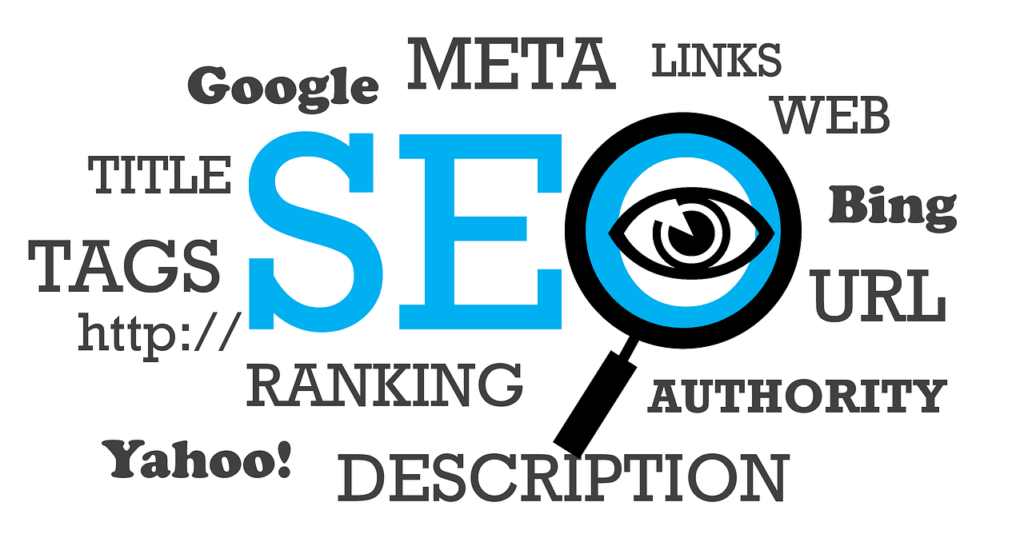White Hat SEO vs Black Hat SEO The Ultimate Guide
White Hat SEO versus Black Hat SEO The Complete Guide: Search Engine Optimization SEO has become important within the scope of digital marketing; it’s considered a prime measure for increased visitors to any particular website along with search engine publicity. Still, not every measure for increasing visits is just nor safe. Only two prominent sorts of SEO policies are observed-the White Hat type and the Black Hat variety of SEO strategies. Even though they aim at upgrading a website’s rank the methodologies and outcomes differ by much. White Hat SEO vs Black Hat SEO The Ultimate Guide
This post will define the differences between Black Hat and White Hat SEO provide examples of both, and delve into the pros and cons of using either. White Hat SEO vs Black Hat SEO The Ultimate Guide
What is White Hat SEO?
White Hat SEO is the term for moral SEO techniques that adhere to the standards established by search engines such as Google, Bing, and Yahoo. By producing excellent content, enhancing user experience, and establishing a strong online presence in an appropriate manner, these strategies seek to raise a website’s rating. The goal of white hat SEO is to give users genuine value by making sure that the information is reliable and pertinent. White Hat SEO vs Black Hat SEO The Ultimate Guide
White Hat SEO is one where the website will be helpful to users rather than trying to fool or manipulate the algorithms of search engines. It follows sustainability and growth over time. White Hat SEO vs Black Hat SEO The Ultimate Guide

Key Features of White Hat SEO:
- High-quality : content is the most crucial component of White Hat SEO. It ought to be useful, instructive, and pertinent to the users. Websites that generate unique material that addresses queries or resolves issues typically have high search engine rankings.
- Keyword Research: White Hat To determine the terms and phrases that people are searching for, SEO depends on doing in-depth keyword research. To raise search engine ranks without being overdone, these keywords are organically included into the titles, meta descriptions, and content.
- Optimizing the website’s: structure, titles, headers, URL structure, and meta tags is known as on-page SEO. Search engines can better comprehend and index a page’s content when on-page SEO is done correctly. White Hat SEO vs Black Hat SEO The Ultimate Guide
- Building Backlinks: Natural Obtaining of White Hat SEO includes backlinks that are also called connections pointing towards your website coming from other websites. The procedure involves constructing reliable backlinks obtained from news websites, blogs relevant to business, and even authority websites. High-quality backlinks enhance ranking and reputation on a website.
- Mobile Optimization: Mobile Optimization: White Hat SEO includes the optimization of mobile-friendliness because more and more people access the internet using mobile devices. Websites that are fast and give a good mobile experience are ranked higher. White Hat SEO vs Black Hat SEO The Ultimate Guide
- UX: WHS has utmost respect for White Hat SEO offers in the light of user-friendliness: Instead of reeling in visitors, people want to sit through the quality contents and pages in case such an interface pleases their sight, as pleasing users.
- Ethical Link Building: The core of ethical link-building is establishing connections with other websites and obtaining mentions or links from well-known websites in your sector. This type of link building guarantees that backlinks are organic and not the product of link farms or other paid schemes. White Hat SEO vs Black Hat SEO The Ultimate Guide
- Transparent Practices: The foundation of White Hat SEO is openness. It emphasizes content optimization, ensuring that it conforms to search engine criteria, and being open and honest about the methods employed to raise a website’s rating.
Benefits of White Hat SEO:
- Long-Term Success: White Hat SEO gives your website a solid foundation that will keep paying off in the long run. Although results may take longer to show, they are more sustainable and reliable.
- No Penalty Risk: White Hat SEO techniques are rewarded by search engines with increased traffic and ranks. Rules-abiding websites have a lower chance of being punished or removed from search engine results. White Hat SEO vs Black Hat SEO The Ultimate Guide
- Better User Experience: The goal of White Hat SEO is to improve user experience, which may increase engagement, decrease bounce rates, and improve conversion rates.
What is Black Hat SEO?
Black Hat SEO is the term for unethical SEO tactics that go beyond search engine standards in an effort to rank higher. These strategies aim to swiftly alter ranks by taking advantage of flaws in search engine algorithms. Black Hat SEO can result in serious fines and long-term harm to a website’s reputation, even if it could produce short-term gains. White Hat SEO vs Black Hat SEO The Ultimate Guide
Black Hat SEO cares little for deceiving search engines over providing something of use to the people. Many tactics are viewed as misleading and manipulative. Engaging in this practice, even for a competitive advantage, is attractive but includes some serious risks. White Hat SEO vs Black Hat SEO The Ultimate Guide

Common Black Hat SEO Techniques:
- Keyword stuffing: Keyword stuffing is the act of stuffing a webpage with too many keywords in an attempt to increase its ranking in the search engine. The problem is that this makes the information hard to read and unnatural. Keyword stuffing is a tactic that search engines can easily detect and punish. White Hat SEO vs Black Hat SEO The Ultimate Guide
- Cloaking: Cloaking is the act of showing one part of content to the search engine crawlers, also known as bots, on a site and delivering another content to human users. Although the content may be misleading or perhaps completely irrelevant this strategy helps achieve higher rankings from the search engines for specific keywords. Cloaking will lead to penalties and is an evident violation of the policies related to the search engines.
- Hidden Text and Links: This technique will make your text or links visible to crawlers of search engines but invisible to human users. This can be done through tiny fonts, off-screen text location, or matching the color of text with White Hat SEO vs Black Hat SEO The Ultimate Guide the color of the background. While this might enhance the ranking of a website’s keyword it has a negative effect on the user experience and may result in fines.
- Doorway Pages: Built to rank for specific keywords, doorway pages are low-quality websites that don’t actually assist a consumer. In many cases, these pages have little content or send users off to other websites on the domain. Search engines can identify doorway pages and de-index them.
- Link farming: connect farming is a technique used to artificially increase the number of backlinks going to a website by building a network of low-quality websites that connect to one another. This is against search engine standards and manipulates the link-building process. Penalties may be imposed on websites found to be engaging in link farms.
- Content Scraping and Spinning:Content scraping involves taking content from other websites and publishing it as yours. In this case, the use of software to delicately alter the material so that it may seem somewhat different but remains virtually the same as the original material is considered as content spinning. Both techniques result in creating duplicate material which could harm your rankings. White Hat SEO vs Black Hat SEO The Ultimate Guide
- Negative SEO: Negative SEO is the art of using less ethical ways to get a competitor lower ranks. Some examples of these may include; stealing their content, creating spamming backlinks to their site, or simply reporting them for having done something against the search engine rules. Negative SEO is, in fact not ethical and carries the risk of lawsuits, despite its appearance to be a very quick fix on getting your own ranks up.
- Paid Links: Purchasing links is another technique of Black Hat SEO. As discussed earlier, though backlinks play a critical role in ranking, search engine recommendation does not recommend buying them. Paid links easily attract penalties, and more often than not, they originate from low-quality sites.
Risks of Black Hat SEO:
- Penalties and Bans: The power of search engines such as Google lies in punishing or banning websites that do not comply with their policies, and one of the major risks associated with Black Hat SEO is that penalties can drastically drop ranks, which would entail a huge loss in organic traffic and revenue. White Hat SEO vs Black Hat SEO The Ultimate Guide
- Loss of Trust: Users and visitors will eventually lose trust towards websites that exploit Black Hat techniques. The users may decide to leave the website and visit the competitors if they feel that they are being manipulated or lied to.
- Short-Term Gains, Long-Term Damage: Short-Term Gains, Long-Term Damage: Black Hat SEO may be successful even if the returns are instant. Any such short-term advantages often come with long-term implications that include penalties or the loss of rankings because the search engine algorithms constantly evolve to determine the ploy. White Hat SEO vs Black Hat SEO The Ultimate Guide
- Legal Consequences: Sometimes, legal action can follow Black Hat SEO strategies, such as content scraping, plagiarism or negative SEO. Websites that commit unethical behavior or content theft may face legal action or copyright breaches. White Hat SEO vs Black Hat SEO The Ultimate Guide
White Hat SEO vs. Black Hat SEO: Key Differences
| Aspect | White Hat SEO | Black Hat SEO |
|---|---|---|
| Approach | ethical and compliant with search engine standards | Search engine manipulation is unethical. |
| Focus | Long-term expansion that offers users value | Gaining quick money by deceiving search engine algorithms |
| Techniques | Natural link-building, keyword research, and high-quality content | Link farming, cloaking, keyword stuffing, and scraping |
| User Experience | Focuses on enhancing content quality and user experience | Poor UX and dishonest strategies |
| Penalties | If rules are obeyed, there are no consequences | High possibility of de-indexing and fines |
| Sustainability | Long-term, sustainable outcomes | Unsustainable, short-lived success |
| Backlinks | naturally obtained from reputable websites | Manipulated or paid links |
| Reputation | Increases user and search engine trust | Damages one’s reputation and breeds distrust |

Conclusion: Why Choose White Hat SEO?
Although Black Hat SEO could appear to be an alluring short cut to fast results it really puts your website’s future at serious danger. Although websites that employ Black Hat methods could see short-term benefits they might be swiftly eclipsed by fines a decline in trust, and long-term harm to their internet image. White Hat SEO vs Black Hat SEO The Ultimate Guide
White Hat SEO on the other hand, concentrates on creating a solid moral basis for your website. White Hat SEO guarantees long-term sustainable success without worrying about penalties by producing high-quality content improving user experience, and adhering to search engine standards.
White Hat SEO is the best option for companies and marketers looking to establish a solid online presence and guarantee consistent development. Although it takes time and work the rewards are worthwhile. White Hat SEO vs Black Hat SEO The Ultimate Guide

Wild Side SEO is the real deal. If you’re in the outdoor industry and want to get more clients, these guys are the ones to call. They work with all kinds of businesses, from RV parks and campgrounds to ski resorts and fishing guides. They’re super knowledgeable and offer awesome SEO services that actually work.
Excellent post. I was checking constantly this blog and I am impressed! Extremely useful information particularly the last part 🙂 I care for such information a lot. I was looking for this particular information for a very long time. Thank you and good luck.